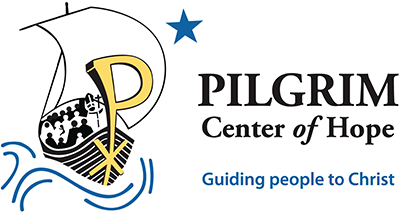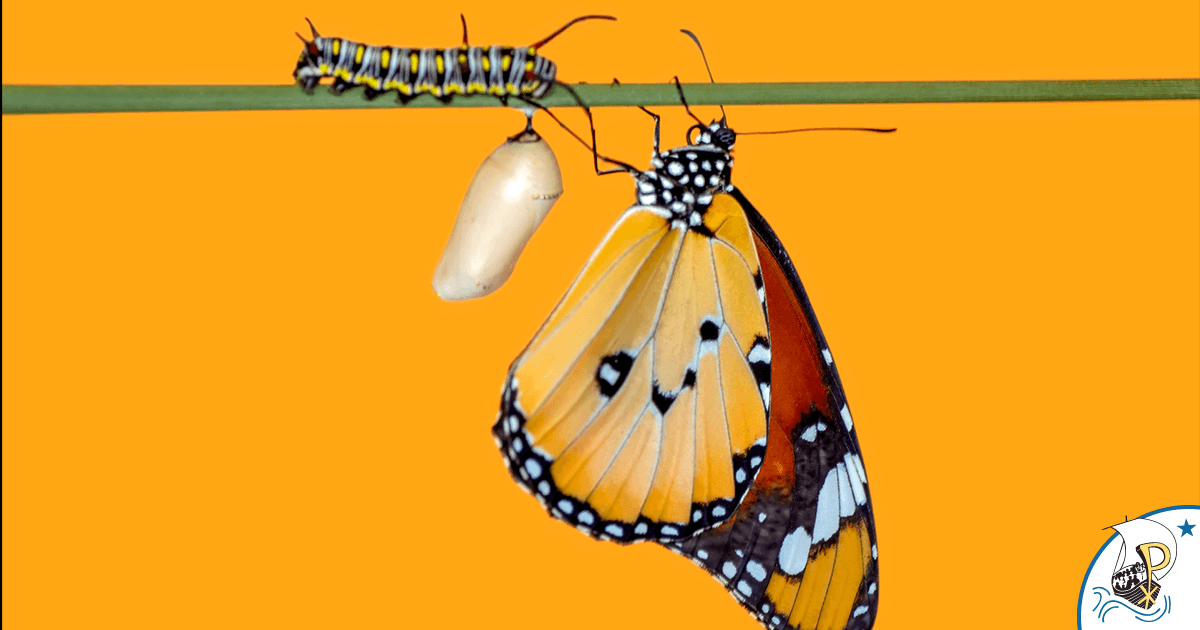“Wow,” muttered the little boy, staring as a caterpillar carefully inched forward in the plastic case by the classroom door.
Early in my childhood memories, I recall my fellow students and I being fascinated with our month-long lesson in metamorphosis; watching ‘creepy-crawlies’ and wondering how they could possibly turn into butterflies. Each day of school, the bugs lived the same, boring routine… until one day, when mysterious green pods appeared in their place. Each subsequent day seemed to last longer than the next, as our curiosity anticipated ‘what would happen.’
Finally, the chrysalises become translucent. Inside were no longer ‘worms,’ but colorfully patterned miracles that soon emerged and began to fly.
Nowadays, how often do our families sit and watch TV shows or YouTube videos that feature time-lapses? We can watch metamorphosis happen in just a few minutes or seconds!
Such efficiency, however, when practiced with regularity, could actually be counteractive to our spiritual goals and well-being.
The Fast-Paced World vs. God’s Timing
“In our fast-paced world, we are used to wanting everything now,” reflected Pope Francis as he introduced this Jubilee Year in the document called Hope does not disappoint. “Patience has been put to flight by frenetic haste, and this has proved detrimental, since it leads to impatience, anxiety and even gratuitous violence, resulting in more unhappiness and self-centeredness.”
“Were we still able to contemplate creation with a sense of awe,” he noted, “we might better understand the importance of patience.”
Jesus points us to God’s creation often in Gospel parables; yeast, birds, seeds and harvests. Each of his stories require a certain period of time which we today might consider “boring,” before growth and change are evident. Part of Nature is also hidden—in underground roots, microscopic bacteria, and the silent work of photosynthesis.
Considering our late Holy Father’s words, it’s safe to say Jesus taught us with Nature-based parables not merely because Nature was his most accessible visual aid. God’s Creation is an antidote to a world that thirsts for a few seconds more of dopamine, adrenaline, and whatever else we can get cheap, quick, and easy.
I recently heard a doctor say that patience is necessary in the healing process, because the remedy for every ailment is the prescription plus time. On the contrary, our society pushes to forego waiting. Pursuing health and happiness in immediacy, we risk benefiting from the effects of time and patience which our Creator wove into the very fabric of the universe.
Discovering God Through Creation
Over 15 years working at Pilgrim Center of Hope, I’ve noticed that people increasingly enjoy spending time in our Prayer Garden, and now specifically seek it out after seeing photographs of it online. Intentionally spending time in such an environment can cultivate an appreciation for the tangible mystery of God’s Creation; an appreciation that spills over into the ordinary circumstances of our lives, pointing our restless spirits to our Creator.
Visitors here at the Center often include families and children. Once, a young mother frantically searched all around the campus for her little boy who had wandered off from the group. After looking in every corner where she expected he might be, she reported that he’d been found in the last place: In the Chapel, quietly ‘looking at Jesus.’
He had found awe and mystery. There, God was hidden, yet actively communicating with her son.
What if teaching ourselves and others to pray, isn’t as complicated as we think it is?
Forming Habits That Lead Us to God
In our frenetic society, a change of our environment and habits is necessary to cultivate ‘rich soil’ in our hearts so that the fruits of God’s Spirit can be received. Otherwise, how can we place ourselves in ‘prayer time’ and expect bodies and minds usually stimulated at high-speed, to suddenly align with the unseen Eternal One?
The Church's Catechism states:
“the life of prayer is the habit of being in the presence of the thrice-holy God and in communion with him” (2656).
Mary and Joseph accepted the challenge of forming not only their habits but their whole lives around Jesus. Now, they are the greatest saints.
How will you and I today choose to adjust our habits, to cultivate patience, to ‘be still’ so that we can finally notice the ever-present love of Almighty God?
Originally written by Pilgrim Center of Hope for Today's Catholic newspaper.

Angela Sealana is the Media Coordinator for Pilgrim Center of Hope, having served at the apostolate since 2010. She also serves on the PCH Speaker Team.
Pilgrim Center of Hope provides Catholic events, experiences, and media; initiating a desire in people to encounter Jesus Christ in their daily journey of life. See what’s happening & let us journey with you! Visit PilgrimCenterOfHope.org.

